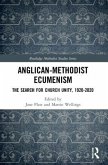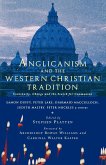Anglicanism is one of the largest and most widely dispersed of all religious traditions. How it reached this status is replete with irony and with conflict. The origins of Anglicanism lie in the Church of England, still its largest branch and arguably its defining center. But the majority of Anglicans now reside in sub-Saharan Africa and do not speak English as their primary language. Given Anglicanism's roots, and its integration into British colonialism, the expansion of this branch of Christianity seems puzzling. Moreover, intramural Anglican conflict, from the end of colonialism onward, seemingly has torn the fabric of Anglican life. It seems problematic that this tradition, and the church bodies that represent it, will remain intact. By looking at the Church through the lens of the biblical theme of promise, this book seeks to offer neither lament for a tattered tradition nor facile hope for an expanding one. It considers the key phases of Anglican history, each defined by clear intentions, from securing English national life, to mission, to finding contextual roots in various locales. Whilst not denying that the ongoing contestation about the proper shape of Anglican faith and practice has become central, the book highlights the emergence of fresh consensus among Anglicans, centered on grassroots initiative and innovation, creating informal patterns of collaboration that can transcend context and overlook divergence.
Hinweis: Dieser Artikel kann nur an eine deutsche Lieferadresse ausgeliefert werden.
Hinweis: Dieser Artikel kann nur an eine deutsche Lieferadresse ausgeliefert werden.








